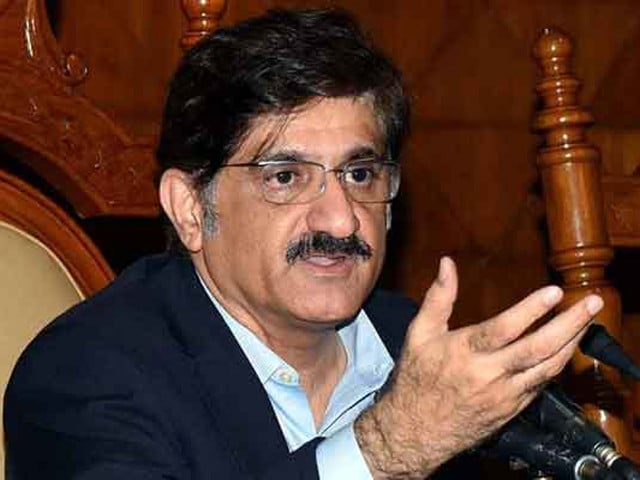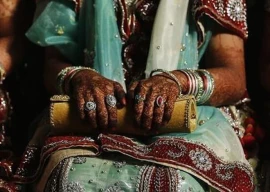
Sindh Chief Minister Syed Murad Ali Shah stated that critical environmental drivers of stunting, including water, sanitation, hygiene, and the agri-food system, are being addressed through ADP schemes and World Bank projects.
He made these remarks during a meeting with World Bank Country Director Najy Benhassine, and his delegation to discuss the Child Stunting Mission.
The meeting was attended by Minister for Health, Dr Azra Fazal Pechuho, acting Chief Secretary Musadqi Ahmad, PSCM Agha Wasif, Chairman P&D Najma Shah, and Secretary Health Agha Wasif. The World Bank delegation members were Economist Ghazaa Mansuri, Senior Health Specialist Ms Hinn Hinn Pyne and Senior Health Expert Ziauddin Hyder.
Murad said that the overall stunting rate in the province as assessed by Unicef in its survey of 2014 was 48 per cent. "The Sindh government launched the World Bank-assisted Multi-Sectorial Accelerated Action Plan (AAP) in 2017 to reduce stunting from 48 per cent to 30 per cent by 2021 and then further reduction up to 15 per cent by 2026," he said and added that the stunting rate had started coming down from 48 per cent but its assessment could be made through another survey.
The CM and the World Bank team agreed to address environmental drivers of stunting by expanding access to safe water and sanitation. Murad stated that the local government and Public Health Engineering department were ensuring the treatment of drinking water, sewage, and effluent. A mass behavioural change campaign by Public-Private Health Initiative (PPHI) and the health department was underway to shift cultural practices. Efforts included declaring Open Defecation Free (ODF) villages, testing water for contaminants, demonstrating household latrine construction, and promoting Community Led Total Sanitation (CLTS).
Murad stated that the Public Health Engineering (PHE) department handles rural water and sanitation services. The PHE will now focus on small, community-level drinking water schemes with poor geographic targeting. He noted that party chairman Bilawal Bhutto Zardari had directed investments in water treatment. As part of the party's election manifesto, the Sindh government will invest in water and sanitation schemes and increase the operation and maintenance budget to restore out-of-order systems, including reverse osmosis (RO) plants.
Discussing stunting, the chief minister decided to enhance access to quality healthcare and improve childcare and feeding practices. Nutritional supplementation will be strengthened for short-term high-risk situations, and family planning efforts will continue.Chief Minister Murad Ali Shah announced the establishment of Outpatient Therapeutic (OPT) Sites and Nutrition Stabilization Centers (NSC) in 23 districts. These centers treat Severe Acute Malnutrition (SAM) at OPT sites and SAM with medical complications at NSCs. Patients receive nutritional commodities (RUFT, MNP, F-75, F-100) and medicines (IFA tabs, Parenteral Iron, Deworm Tabs) for children, adolescents, and pregnant & lactating women (PLWs).
Capacity-building training for Community-based Management of Acute Malnutrition (CMAM) and Infant Young and Child Feeding (IYCF) is ongoing. To improve the agri-food system, the chief minister aims to promote sustainable and regenerative farming, crop diversification, and livestock productivity to enhance access to nutritious, diverse foods for small farmers. Efforts will also focus on ensuring food safety and reducing post-harvest waste.
Under the Asset Distribution initiative, livestock (five goats and 10 poultry per household) is provided, along with veterinary services (biannual vaccination and drenching) and awareness programs on nutrition and livestock management practices. APP
Published in The Express Tribune, May 21st, 2024.




1730959638-0/trump-(19)1730959638-0-165x106.webp)














COMMENTS
Comments are moderated and generally will be posted if they are on-topic and not abusive.
For more information, please see our Comments FAQ